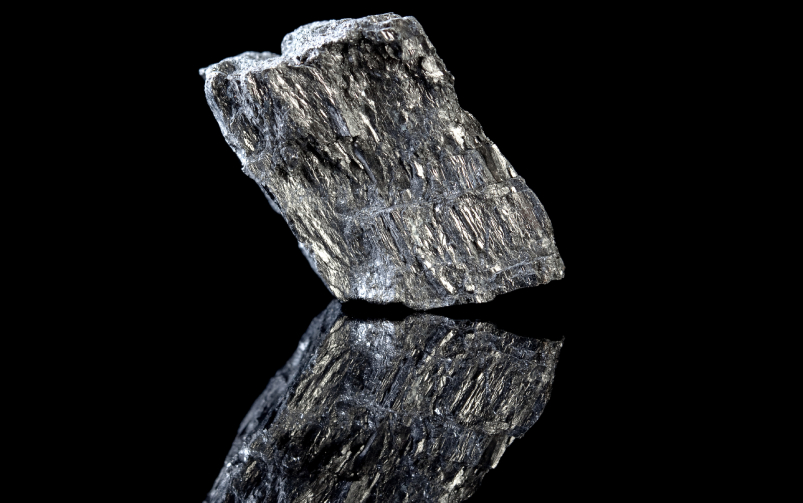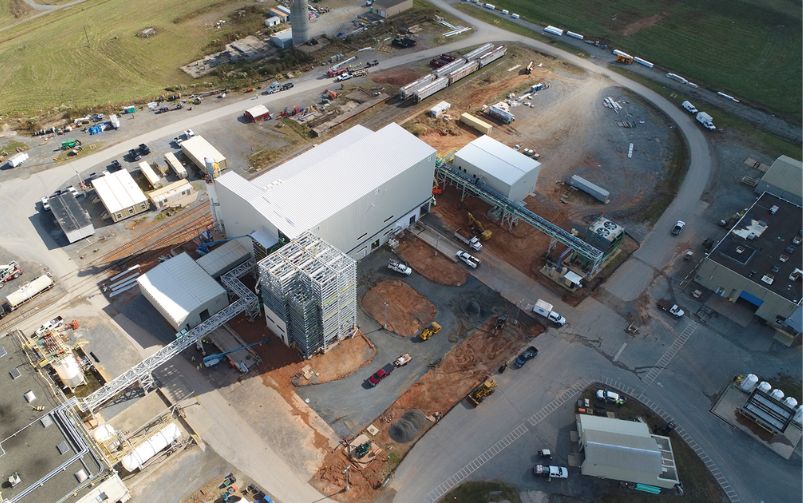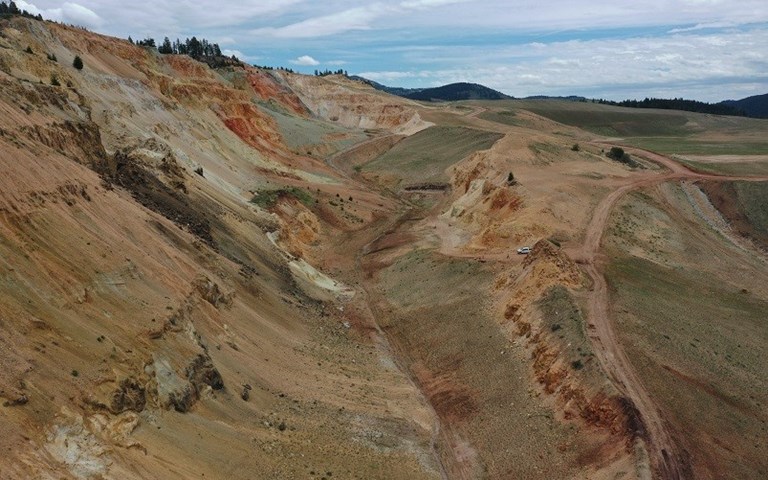Integra Resources, which is merging with Millennial Precious Metals, is focused on the exploration and development of its DeLamar gold-silver project in Idaho. Courtesy of Integra Resources.
Welcome back to your weekly mining news recap, where we catch you up on some of the news you may have missed. This week’s headlines include a new detonator manufacturing plant, updated mineral resource estimates and a wrongful termination lawsuit.
The Ontario government has proposed changes to the laws governing approval of the province’s mining projects to promote the production of critical minerals for electric vehicle batteries, as reported by CBC News. Premier Doug Ford proposed the changes to the Mining Act in order to secure a supply chain in northern Ontario for minerals essential to high-tech products. The proposed amendments include simplifying the approval of mine closure plans as well as the process for companies to get a permit to recover minerals from mine tailings and waste.
BME Mining Canada will launch greenfield production and service facilities in Nairn Centre, Ontario later this year. The operations will include a detonator manufacturing plant, which will produce BME’s AXXIS detonators, and laboratories for quality control and product development. BME’s AXXIS detonators have previously undergone field testing, including blasts in temperatures below -40° Celsius.
Alamos Gold entered into a definitive agreement to acquire all outstanding common shares of Manitou Gold, as reported by Canadian Mining Journal. The agreement will add to Alamos’ existing shares and extend its land package around its Island Gold mine in Ontario to over 55,000 hectares, a 267 per cent increase, with the addition of the Goudreau property. The value of the transaction is approximately $17.2 million.
EV Nickel released the first mineral resource estimate for the A Zone part of the CarLang area of exploration focus at its Shaw Dome project near Timmins, as reported by Northern Ontario Business. The company reported a defined nickel resource estimate of one billion tonnes averaging 0.24 per cent nickel in the zone, including a core area with a higher grade of 290 million tonnes at 0.27 per cent nickel in the indicated category and 203 million tonnes at 0.27 per cent nickel in the inferred category. The company stated that this “puts it into the league of the largest undeveloped nickel deposits in the world.”
Natural Resources Minister Jonathan Wilkinson said the federal government will not match Ontario’s established $1 billion pledge towards infrastructure to develop mining in the Ring of Fire, as reported by Northern Ontario Business. He stated that until environmental assessments are completed for the proposed community and industry supply roads that will serve the Ring of Fire, located in Ontario’s James Bay region, the government will not make large-scale commitments.
Wesdome Gold Mines’ historic Kiena gold mine near Val d’Or, Quebec began commercial production in December 2022; the site was first mined in 1936 and has had several previous periods of production, going into care and maintenance in 2013. Just before CIM Magazine went to press, Duncan Middlemiss, Wesdome company president and CEO, and our primary source for this article, resigned after supply chain delays put the company approximately six months later than planned on Kiena’s original commercial production date and 9-12 months behind schedule on ramp development, limiting operations to lower grade areas of the mine.
Integra Resources and Millennial Precious Metals have agreed on an at-market merger, which the companies said would create one of the largest precious metals development and exploration companies in the Great Basin region of the western U.S., as reported by Mining.com. The combined company will hold a diversified portfolio of assets in the Great Basin, including Integra’s past producing gold-silver DeLamar project in Idaho and Millennial’s Wildcat and Mountain View gold projects in Nevada. The companies also announced Wheaton Precious Metals as a new cornerstone investor.
A former leader at Skeena Resources is suing her past employer for wrongful termination, as reported by Business in Vancouver. The plaintiff, a former senior vice-president of corporate development at the company, claimed she experienced sexist and toxic conduct and that the company ignored 18 months of complaints from several women about a toxic workplace environment. She also alleged that following her complaints to executives, she was removed from project financing decisions that fell under her sphere of responsibility and was shut out of senior management meetings. Skeena Resources acknowledged the claim, but stated that it strongly disagreed with the allegations.
Frontier Lithium has updated the mineral resource estimate for the Spark deposit, which is part of its PAK lithium project in Ontario, as reported by Mining.com. The update shows 18.8 million tonnes averaging 1.52 per cent of lithium oxide in the indicated category, representing a 30 per cent increase in size since the results released in December 2022, and 29.7 million tonnes averaging 1.34 per cent of lithium oxide in the inferred category, representing a 64 per cent size increase.
Australian gold miner St Barbara is considering placing its Touquoy gold mine in Nova Scotia into care and maintenance amid a delay in government approval of its in-pit tailings deposition plan, as reported by Mining.com. The province’s environment minister asked for further information on the company’s environmental assessment of the proposal, but the company said compiling the requested information would take more time than is available before capacity of the existing tailings management facility is reached at the beginning of 2024, meaning it would delay Touquoy’s production early next year.
That’s all for this week. If you’ve got feedback, you can always reach us at editor@cim.org. If you’ve got something to add, why not join the conversation on our Facebook, Twitter, LinkedIn, or Instagram pages?




